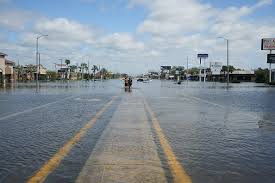



Florida health officials are raising urgent concerns after an alarming outbreak of a deadly flesh-eating bacteria, scientifically known as Vibrio vulnificus, has claimed the lives of four people and hospitalized seven more. The infection, which spreads rapidly through open wounds or the consumption of contaminated seafood, has put coastal communities on high alert.
Flesh-eating bacteria, another name for necrotizing fasciitis, is a rare but dangerous condition that can eat away at skin, muscle, and fat. Once it enters the body—often through minor cuts, scrapes, or surgical wounds—it spreads rapidly, leading to potentially fatal consequences if not treated immediately.
According to the Florida Department of Health, most cases have been linked to warm coastal waters and shellfish contaminated with Vibrio vulnificus. The bacteria thrive in warm saltwater, particularly during the summer months when sea temperatures rise above 68°F (20°C).
Most affected counties:
Sarasota
Tampa Bay
Lee County
Residents and visitors are now being advised by health authorities to take precautions when handling raw seafood, especially oysters, and to avoid swimming with open wounds.
Early detection is critical. According to the CDC, symptoms can appear within a few hours of exposure. They include:
Severe pain or swelling
Redness or discoloration of the skin
Fever and chills
Nausea and vomiting
Ulcers or blisters at the infection site
If untreated, the bacteria can enter the bloodstream, leading to sepsis, organ failure, and death.
People with weakened immune systems, chronic liver conditions, or diabetes are at higher risk of severe complications. The elderly and those with open wounds or recent surgery should be especially cautious.
If you’re vacationing or living near Florida’s coastal regions, you need to be particularly vigilant.
To minimize the risk of contracting this dangerous infection, follow these health safety tips:
2.Wear protective gloves when handling raw seafood.
3.Cook shellfish thoroughly—especially oysters.
4.Wash any wound thoroughly after contact with water or seafood.
5.Seek medical help at the first sign of unusual symptoms.
State and federal health agencies are collaborating to monitor the outbreak. Local restaurants and seafood vendors are being inspected more frequently, and public awareness campaigns are being launched across Florida’s coastal cities.
This crisis mirrors previous outbreaks reported in Texas, Louisiana, and Mississippi, reinforcing the need for nationwide vigilance.